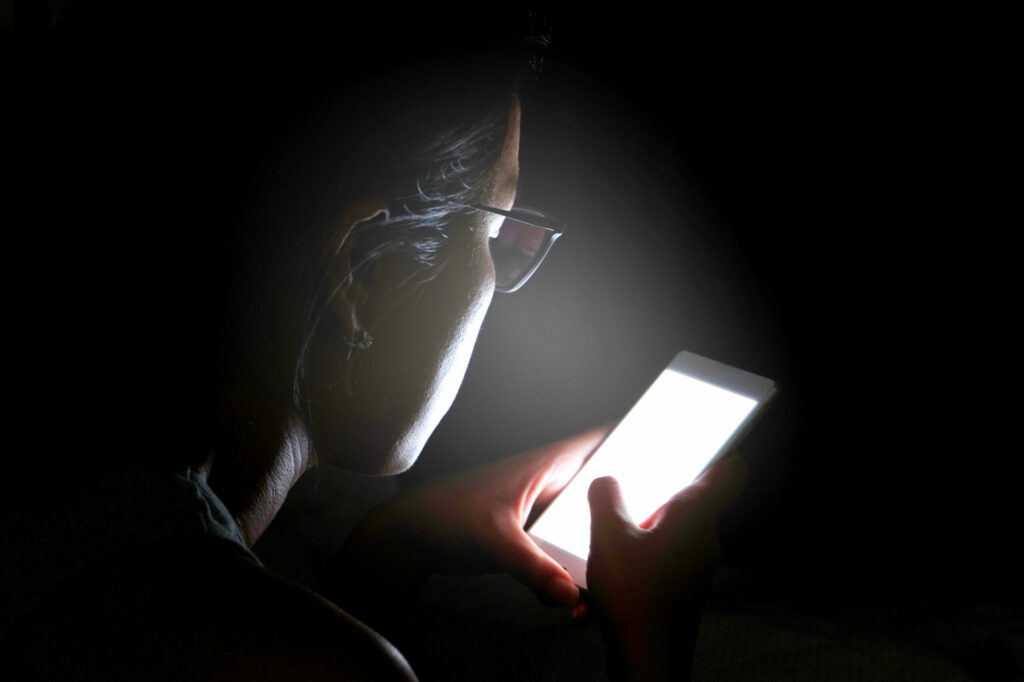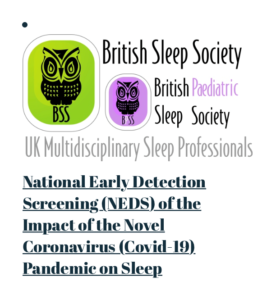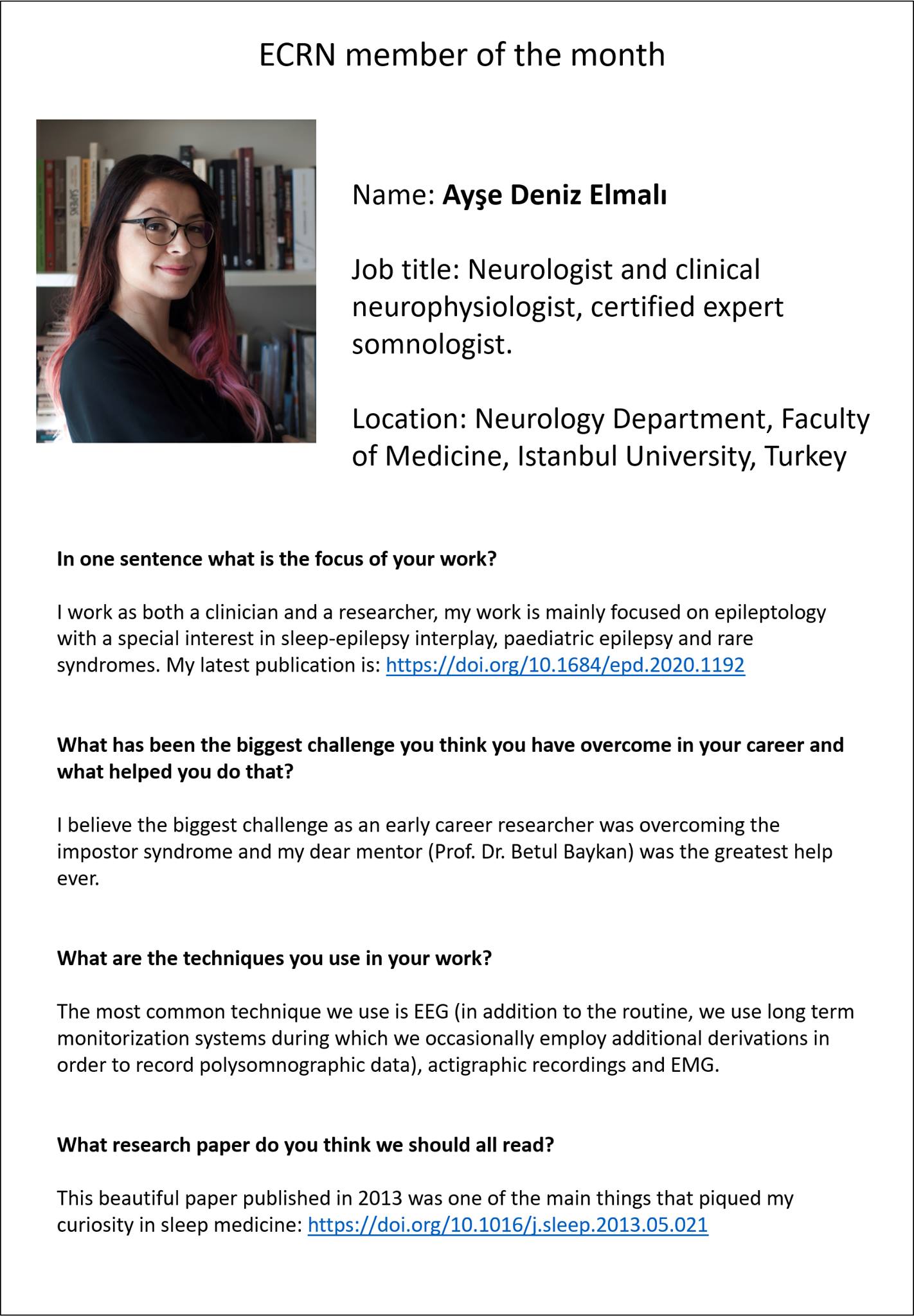Sleep Science Friday: Counting ballots? I’d rather be counting sheep
Sleep Science Friday
It’s the end of another week—grab a coffee/tea/beer/wine and end your week with a quick recap of Sleep Science News and ESRS updates!
Counting ballots? I’d rather be counting sheep
6 November 2020
To say that 2020 has been stressful would be an understatement; as Europe is named the new COVID-19 epicenter by the WHO, the USA prepared for a different kind of wave—red or blue. But it wasn’t just Americans who were anxiously sleepless; people worldwide tuned in watching ballots slowly trickle in as sleepy-eyed newscasters reported a continual play-by-play of events, interspersed with comments of power naps and obvious ongoing frustration. Election season can be taxing—especially when the results have far-reaching consequences and during a year like 2020 that asks us to bite off more than we can chew. Accordingly, these events can also affect sleep on a population—or even global—level.
As uncertainty and tensions rise, sleep quality inevitably reduces—affecting mood and overall well-being. In the 2016 presidential election, undergraduate students showed increased stress, anxiety, and poor sleep quality leading up to the election. The 2020 elections prove to be no different, as citizens worry over the outcome and potential unrest. What’s more, Holbein et al. (2020) even found that insufficient sleep predicted lower civic engagement (e.g., voting, signing petitions, donating), citing that “results highlight the strong negative consequences that current levels of insufficient sleep have on vitally important measures of social capital.”
While the 2020 elections have an unequivocally larger burden on Americans, Europeans are not immune to similar pressures. During the Brexit referendum in 2016 the British suffered similar effects as Americans exhibiting reduced sleep duration. Therefore, given such large-scale future uncertainties, we should be aware of outside forces that can affect our sleep quality. Furthermore, Europe faces several tricky and stressful periods in the upcoming year, including the Brexit transition period ending 31 December 2020 (where the UK will no longer be a part of the single market or customs union), along with several European elections, including the 2021 German federal election and conclusion of Angela Merkel’s historic 15 years as Chancellor and stabilizing force in Europe’s strongest economy.
In general, we (more or less) regularly experience short-term effects of acute stressors in our daily lives: we have difficulties falling asleep or waking up too early; and ruminating over the next day renders us wide-awake. However, acute stressors may have long-term effects, where decreased well-being and prolonged feelings of anger and fear during the months following a disappointing event can contribute towards developing chronic sleep disorders, such as insomnia. And it’s not just adults who feel anxious about the future as the youth take an increasingly more politically active role (#FridaysForFuture).
So how can we manage our anxiety and sleep during uncertain times? Sleep hygiene is always recommended, as well as avoiding or reducing social media and learning relaxation techniques. Inadequate sleep also corresponds with worsened mood regulation (particularly negative emotions)—with Presidents not immune to these affects. In the face of adversity, dispositional optimism (either innate or learned) is also shown to improve sleep quality and is linked to better overall health.
In the meantime, if you’ve felt particularly sleep-deprived or stressed this week, remember to listen to your body, focus on the present moment, and set aside some time for a good night’s sleep.
Featured e-sleep lesson: The importance of sleep entrainment and sleep hygiene by Professor Anna Wirz-Justice (Centre for Chronobiology, Universität Basel)
Professor emeritus Anna Wirz-Justice discusses the importance of sleep entrainment, noting that keeping the sleep-wake cycle well entrained may alleviate some aspects of mental illnesses—even if the core of the illness is not directly treated. Therefore, sleep entrainment and sleep hygiene are very important for psychiatry as a whole.
Check out over 50 videos on the physiological basis of sleep featured here (currently members only).
Recent publications on sleep quality, stressors, and anxiety:
- Berg et al. (2020)Sleep quality mediates the relationship between traumatic events, psychological distress, and suicidality in college undergraduates
- Clementi & Alfano (2020)An integrated sleep and anxiety intervention for anxious children: A pilot randomized controlled trial
- Grove et al.(2020) Prospective association between suicide cognitions and emotional responses to a laboratory stressor: The mediating role of nightly subjective sleep quality
- Leger & Charles (2020)Affective recovery from stress and its associations with sleep
- Ma et al. (2020)Bedtime procrastination predicts the prevalence and severity of poor sleep quality of Chinese undergraduate students
- Morales-Muñoz et al.(2020) Association of Parent-Reported Sleep Problems in Early Childhood with Psychotic and Borderline Personality Disorder Symptoms in Adolescence
- Nowak et al.(2020) Association of naturally occurring sleep loss with reduced amygdala resting-state functional connectivity following psychosocial stress
- Rasmussen et al. (2020)Short-term efficacy of reducing screen media use on physical activity, sleep, and physiological stress in families with children aged 4–14: study protocol for the SCREENS randomized controlled trial
- Robbins et al.(2020) Four-Year Trends in Sleep Duration and Quality: A Longitudinal Study Using Data from a Commercially Available Sleep Tracker
- Serdari et al.(2020) Insight into the relationship between sleep characteristics and anxiety: A cross-sectional study in indigenous and minority populations in northeastern Greece
- Sessannaet al. (2020) The Experience of Participating in an 8-Week Mindfulness Based Stress Reduction plus Sleep Retraining Course among Women Living with Multiple Sclerosis
- Shuttleworth & Foster (2020)Sleep and stress
- Vindegaard & Benros (2020)COVID-19 pandemic and mental health consequences: Systematic review of the current evidence
- Weegeret al. (2020) Salivary cortisol response to psychosocial stress in the late evening depends on CRHR1 genotype
After a survey we shared earlier this year, the results of the British Sleep Society National Early Detection Screening of the Impact of the COVID-19 pandemic on sleep are now published by Pérez-Carbonell et al. in the Journal of Thoracic Disease. The authors found that lockdown regulations had a significant impact on sleep quality and mental health.
For similar articles on what’s interrupting your sleep—see past SSFs:
- Covid-19 and Sleep (31 July 2020)
- What’s keeping you up? The European Insomnia Network and CBT-I (24 July 2020)
ESRS News and Announcements
Congratulations to our ESRS Secretary Dr. Erna Sif Arnardóttir and her collaborators who were recently awarded a 15 million Euro Horizon 2020 grant!
Dr. Arnardóttir, an Assistant Professor at Reykjavik University’s Department of Engineering and Department of Computer Science (Iceland), will lead the project “Sleep Revolution”, an ambitious project that aims to develop machine learning techniques to better treat and diagnosis patients with obstructive sleep apnea. We are excited to talk to Dr. Arnardóttir to learn more about her project—so stay tuned! In the meantime, see the full news brief and a list of collaborating partners here.
We would also like to highlight last month’s ESRS Early Career Researcher Network member, Ayşe Deniz Elmalı, a neurologist and clinical neurophysiologist (Istanbul University) with a focus on epileptology. See her latest publication, “How to diagnose and classify idiopathic (genetic) generalized epilepsies” and recommended paper by Marzano et al. (2013).
Interested in or working on sleep and sleep-related research and medicine?
Attendees of the virtual edition of the 25th Congress of the ESRS (22 – 24 September 2020) still have access to all our amazing talks and posters online—extended until the 30 November 2020! For those who were unable to attend, stay tuned as we work on making the Congress more widely available on our ESRS website. The abstracts of ESRS2020 were published in a Special Edition of the Journal of Sleep Research (Vol 29, Issue S1).
For more sleep talks—Sleep and Breathing will now be held on 16 – 17 April 2021 (note the change from 3 to 2 days). Although originally planned in Prague, the conference will now be entirely virtual in consideration for the health and safety of our attendees, organizers, and speakers during uncertainties surrounding the COVID-19 pandemic. Organized by the ESRS and the European Respiratory Society, #SleepBreathe21 will be the largest pan-European meeting of its kind—offering an integrated approach in the investigation and treatment of sleep disorders with a focus on sleep respiratory medicine and science. See the scientific programme available online. Abstract submission deadline has been extended until Friday 27 November 2021.
For those of you preparing for the 2021 Examination in Sleep Medicine, please note that the exam has been postponed until September 2021 and will be online only.
Have a great weekend everyone—stay safe and remember to get offline!
Just published an article? Want your research to be featured? Saw something interesting? Contact: doris.wu [ at ] esrs.eu.
Not an ESRS member yet? Apply here and see our wide range of benefits, including a yearly online subscription to the Journal of Sleep Research, automatic membership to the Federation of European Neuroscience Societies (FENS), support for early career researchers via the ECRN, regular updates via the ESRS Newsletter, promotion of your research, and more.









